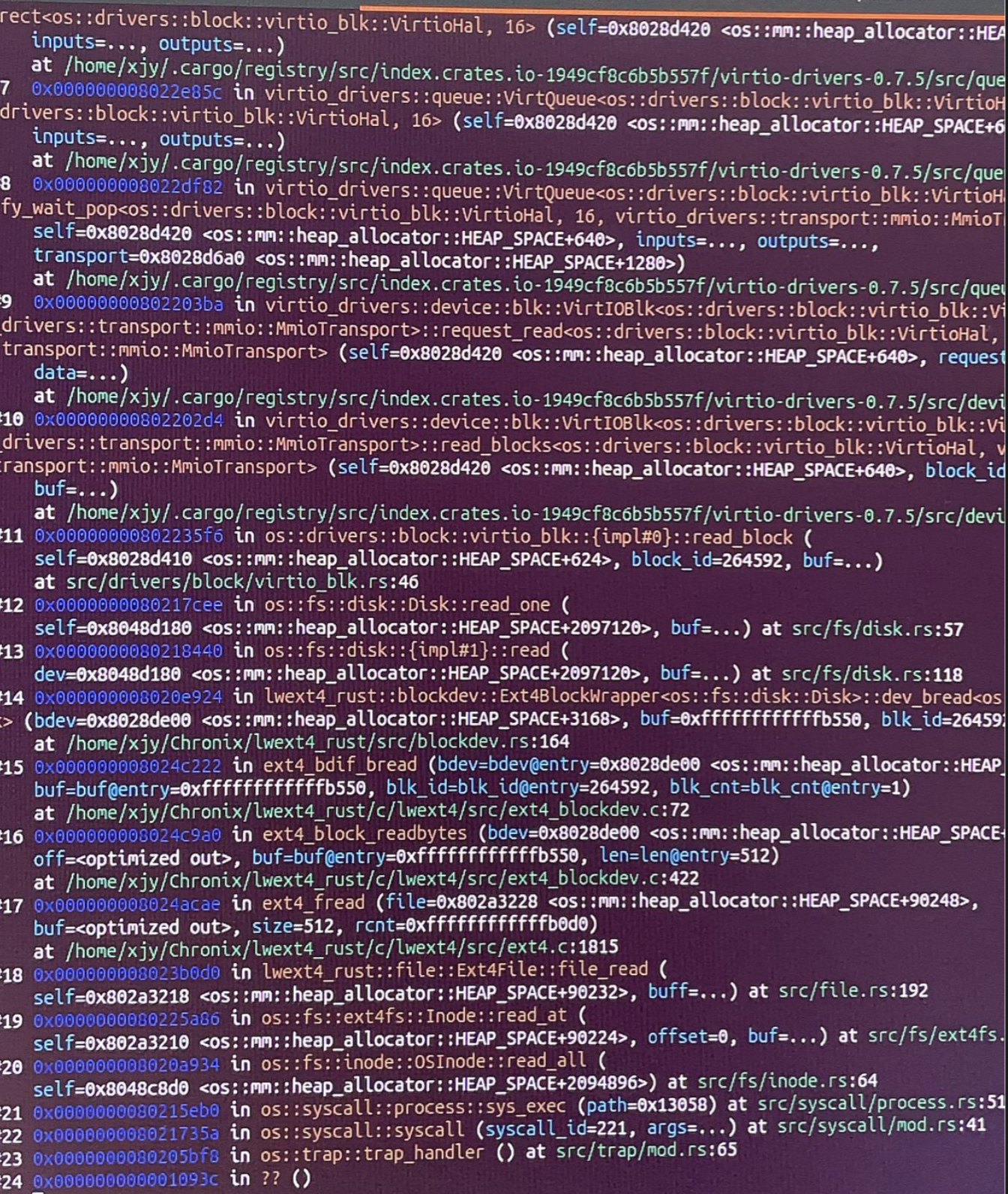1
2
3
4
5
6
7
8
9
10
11
12
13
14
15
16
17
18
19
20
21
22
23
24
25
26
27
28
29
30
31
32
33
34
35
36
37
38
39
40
41
42
43
44
45
46
47
48
49
50
51
52
53
54
55
56
57
58
59
60
61
62
63
64
65
66
67
68
69
70
71
72
73
74
75
76
77
78
79
80
81
82
83
84
85
86
87
88
89
90
91
92
93
94
95
96
97
98
99
100
101
102
103
104
105
106
107
108
109
110
111
112
113
114
115
116
117
118
119
120
121
122
123
124
125
126
127
128
129
130
131
132
133
134
135
136
137
138
139
140
141
142
143
144
145
146
147
148
149
150
151
152
153
154
155
156
157
158
159
160
161
162
163
164
165
166
167
168
169
170
171
172
173
174
175
176
177
178
179
180
181
182
183
184
185
186
187
188
189
190
191
192
193
194
195
196
197
198
199
200
201
202
203
204
205
206
207
208
209
210
211
212
213
214
215
216
217
218
219
220
221
222
223
224
225
226
227
228
229
230
231
232
233
234
235
236
237
238
239
240
241
242
243
244
| unsafe impl Send for Inode {}
unsafe impl Sync for Inode {}
impl Inode {
pub fn new(path: &str, types: InodeTypes) -> Self {
info!("Inode new {:?} {}", types, path);
Self(RefCell::new(Ext4File::new(path, types)))
}
fn path_deal_with(&self, path: &str) -> String {
if path.starts_with('/') {
warn!("path_deal_with: {}", path);
}
let p = path.trim_matches('/');
if p.is_empty() || p == "." {
return String::new();
}
if let Some(rest) = p.strip_prefix("./") {
return self.path_deal_with(rest);
}
let rest_p = p.replace("//", "/");
if p != rest_p {
return self.path_deal_with(&rest_p);
}
let file = self.0.borrow_mut();
let path = file.get_path();
let fpath = String::from(path.to_str().unwrap().trim_end_matches('/')) + "/" + p;
info!("dealt with full path: {}", fpath.as_str());
fpath
}
#[allow(unused)]
pub fn find(&self, name: &str) -> Option<Arc<Inode>> {
let file = self.0.borrow_mut();
info!("find name: {} in {}", name, file.get_path().to_str().unwrap());
let (names, inode_type) = file.lwext4_dir_entries().unwrap();
info!("out lwext4_dir_entries");
let mut name_iter = names.iter();
let mut inode_type_iter = inode_type.iter();
info!("into while");
while let Some(iname) = name_iter.next() {
let itypes = inode_type_iter.next();
info!("iname: {}", core::str::from_utf8(iname).unwrap());
if core::str::from_utf8(iname).unwrap().trim_end_matches('\0') == name {
info!("find {} success", name);
let full_path = String::from(file.get_path().to_str().unwrap().trim_end_matches('/')) + "/" + name;
return Some(Arc::new(Inode::new(full_path.as_str(), itypes.unwrap().clone())));
}
}
info!("find {} failed", name);
None
}
pub fn lookup(&self, name: &str) -> Option<Arc<Inode>> {
let mut file = self.0.borrow_mut();
let full_path = String::from(file.get_path().to_str().unwrap().trim_end_matches('/')) + "/" + name;
if file.check_inode_exist(full_path.as_str(), InodeTypes::EXT4_DE_REG_FILE) {
info!("lookup {} success", name);
return Some(Arc::new(Inode::new(full_path.as_str(), InodeTypes::EXT4_DE_REG_FILE)));
}
info!("lookup {} failed", name);
None
}
#[allow(unused)]
pub fn ls(&self) -> Vec<String> {
let file = self.0.borrow_mut();
if file.get_type() != InodeTypes::EXT4_DE_DIR {
info!("not a directory");
}
let (name, inode_type) = match file.lwext4_dir_entries() {
Ok((name, inode_type)) => (name, inode_type),
Err(e) => {
panic!("error when ls: {}", e);
}
};
let mut name_iter = name.iter();
let _inode_type_iter = inode_type.iter();
let mut names = Vec::new();
while let Some(iname) = name_iter.next() {
names.push(String::from(core::str::from_utf8(iname).unwrap()));
}
names
}
pub fn read_at(&self, offset: usize, buf: &mut [u8]) -> Result<usize, i32> {
debug!("To read_at {}, buf len={}", offset, buf.len());
let mut file = self.0.borrow_mut();
let path = file.get_path();
let path = path.to_str().unwrap();
file.file_open(path, O_RDONLY)?;
file.file_seek(offset as i64, SEEK_SET)?;
let r = file.file_read(buf);
let _ = file.file_close();
r
}
pub fn write_at(&self, offset: usize, buf: &[u8]) -> Result<usize, i32> {
debug!("To write_at {}, buf len={}", offset, buf.len());
let mut file = self.0.borrow_mut();
let path = file.get_path();
let path = path.to_str().unwrap();
file.file_open(path, O_RDWR)?;
file.file_seek(offset as i64, SEEK_SET)?;
let r = file.file_write(buf);
let _ = file.file_close();
r
}
pub fn truncate(&self, size: u64) -> Result<usize, i32> {
info!("truncate file to size={}", size);
let mut file = self.0.borrow_mut();
let path = file.get_path();
let path = path.to_str().unwrap();
file.file_open(path, O_RDWR)?;
let t = file.file_truncate(size);
let _ = file.file_close();
t
}
pub fn create(&self, path: &str, ty: InodeTypes) -> Option<Arc<Inode>> {
info!("create {:?} on Ext4fs: {}", ty, path);
let fpath = self.path_deal_with(path);
let fpath = fpath.as_str();
if fpath.is_empty() {
info!("given path is empty");
return None;
}
let types = ty;
let mut file = self.0.borrow_mut();
let result = if file.check_inode_exist(fpath, types.clone()) {
info!("inode already exists");
Ok(0)
} else {
if types == InodeTypes::EXT4_DE_DIR {
file.dir_mk(fpath)
} else {
file.file_open(fpath, O_WRONLY | O_CREAT | O_TRUNC)
.expect("create file failed");
file.file_close()
}
};
match result {
Err(e) => {
error!("create inode failed: {}", e);
None
}
Ok(_) => {
info!("create inode success");
Some(Arc::new(Inode::new(fpath, types)))
}
}
}
#[allow(unused)]
fn remove(&self, path: &str) -> Result<usize, i32> {
info!("remove ext4fs: {}", path);
let fpath = self.path_deal_with(path);
let fpath = fpath.as_str();
assert!(!fpath.is_empty());
let mut file = self.0.borrow_mut();
if file.check_inode_exist(fpath, InodeTypes::EXT4_DE_DIR) {
file.dir_rm(fpath)
} else {
file.file_remove(fpath)
}
}
#[allow(unused)]
fn parent(&self) -> Option<Arc<Inode>> {
let file = self.0.borrow_mut();
if file.get_type() == InodeTypes::EXT4_DE_DIR {
let path = file.get_path();
let path = path.to_str().unwrap();
info!("Get the parent dir of {}", path);
let path = path.trim_end_matches('/').trim_end_matches(|c| c != '/');
if !path.is_empty() {
return Some(Arc::new(Self::new(path, InodeTypes::EXT4_DE_DIR)));
}
}
None
}
#[allow(unused)]
fn rename(&self, src_path: &str, dst_path: &str) -> Result<usize, i32> {
info!("rename from {} to {}", src_path, dst_path);
let mut file = self.0.borrow_mut();
file.file_rename(src_path, dst_path)
}
}
impl Drop for Inode {
fn drop(&mut self) {
let mut file = self.0.borrow_mut();
info!("Drop struct Inode {:?}", file.get_path());
file.file_close().expect("failed to close fd");
drop(file);
}
}
|
